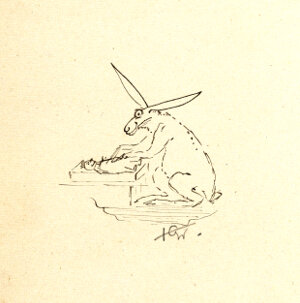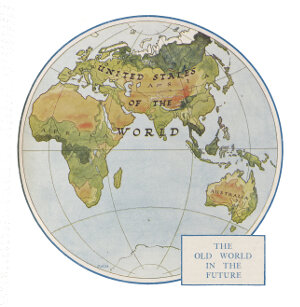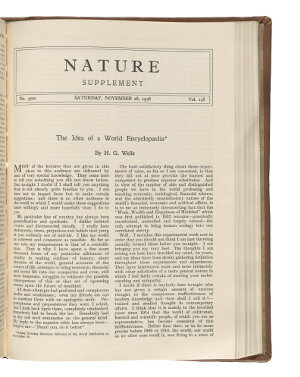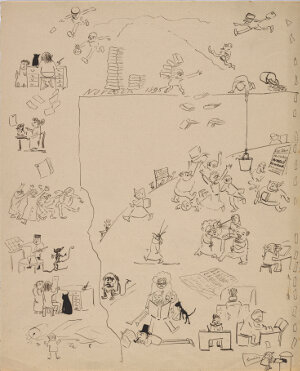 H. G. Wells (1866-1946). Text-book of Biology. London: W.B. Clive & Co., University Correspondence College Press, [1893].
H. G. Wells (1866-1946). Text-book of Biology. London: W.B. Clive & Co., University Correspondence College Press, [1893].
Wells 570 W46t cop. 1
Text-Book of Biology begins with instructions in how to dissect a rabbit: this copy, originally owned by Amy Catherine Robbins, the student who became Wells’s second wife, is inscribed with the author’s cartoon of a giant rabbit dissecting H. G. Wells.
 H. G. Wells. The outline of history, being a plain history of life and mankind. London: G. Newnes, [1919-20].
H. G. Wells. The outline of history, being a plain history of life and mankind. London: G. Newnes, [1919-20]. H. G. Wells. ‘The Idea of a World Encyclopedia.’ Nature, 138, no. 3500 (28 November 1936) : 917-24.
H. G. Wells. ‘The Idea of a World Encyclopedia.’ Nature, 138, no. 3500 (28 November 1936) : 917-24. H. G. Wells. Picshua [sketch] ‘The Shop of Authorship.’ [November 1895]. Wells Picshua Box 1
H. G. Wells. Picshua [sketch] ‘The Shop of Authorship.’ [November 1895]. Wells Picshua Box 1